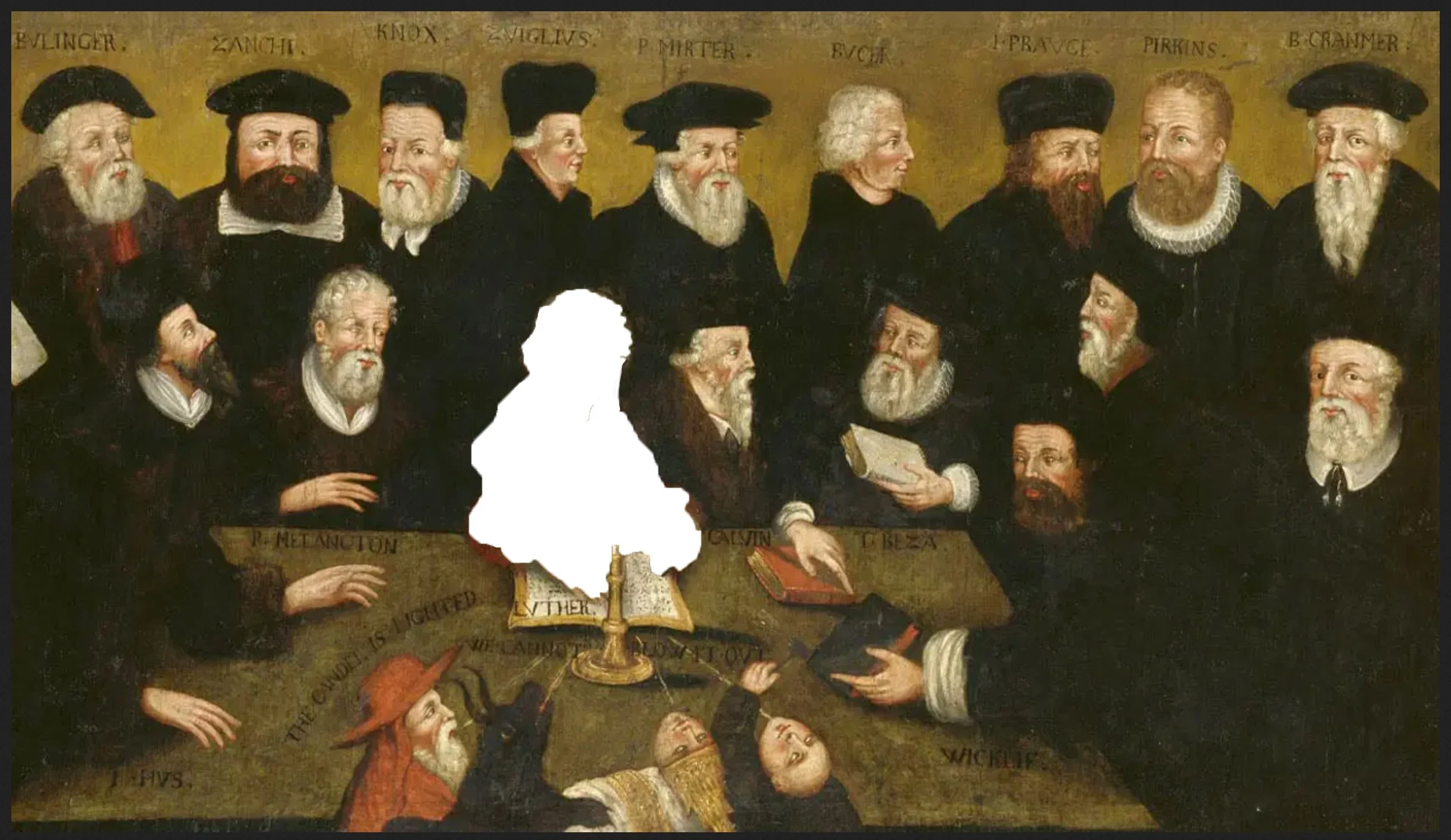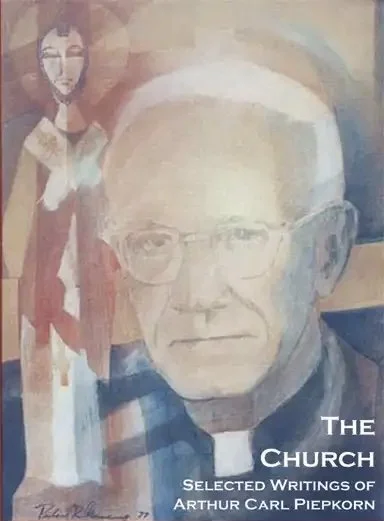Protestantism Without Luther
This article first appeared in print in the Spring 2024 issue of Lutheran Forum (vol. 57:1, pp. 33-34). Please consider supporting the work of Lutheran Forum by subscribing to the journal.
by John W. Hoyum
From one perspective, Martin Luther is an icon of conservative Reformation: he was devoted to the real presence of Christ in the Eucharist, clung to the power of baptism to bestow salvation, and retained much of the structure and ceremony of the Western mass. His invective against iconoclasm is peerless in its severity. Luther also held ordained ministry in high regard as that means by which word and sacrament are preached and administered.
Even so, few intellectual genealogies have been so fashionable as the one in which modernity springs forth from the Reformation. The moral of the story is clear: get behind the disaster of Luther, and you get behind the chaos of the modern world. This narrative has funded initiatives in political theology, like recent experiments in postliberal thought which propose an “integralist” political Catholicism as the solution to liberalism’s failures (or perhaps its successes). This parallels the postmodern resuscitation of Thomas’s analogical metaphysics, especially in radical orthodoxy. Restoring a Christian vision of the world in relation to God grants no autonomy to any region of creation, for there is no pure nature, nor are there any purely natural ends.
The cogency of this story has not been lost on Protestants either—even while they have not accepted it entirely. Recent apologetics for the catholicity of the Reformation trade on the same story of metaphysical decline that funds anti-Protestant polemics from the Catholic side. The dispute is a matter of where to locate the origin of modernity, and the defenders of early Protestantism maintain that it must be positioned after the era of post-Reformation scholasticism. The theologians of early Protestant orthodoxy are, in this case, a great source of renewal against the backdrop of modernity.
It is curious, therefore, that Luther’s writings have not found as much of a hearing in the campaign to set forth a catholic image of the Reformation. Luther’s substantial continuity with the pre-Reformation church on important issues like the sacraments, liturgy, and the ministry should—we might think—make Luther a great example of what presently popular programs of retrieval seek. Luther is a catholic whose reforms go only so far as necessarily required by faithfulness to the gospel. And yet more often than not, Protestant retrieval initiatives submit an image of the Reformation in which Luther is almost entirely absent. This is a Protestantism without Luther.
The reason for this, I suggest, is that the Catholic integralists, Thomists, and radical orthodoxy have a legitimate point to make about the underlying metaphysical rupture the Reformation represents. A brand of the “Scotus story”—which famously situates nominalism at the headwaters of modernity—has more truth to it than some Protestants are willing to admit. It complicates any agenda in which the Reformation retains a basic structural unity with its predecessors. On a metaphysical level, Luther—for all his catholicity otherwise—is emblematic of the Reformation’s fundamental break with the tradition.
We should not seek Luther’s discontinuity with pre-Reformation thought in his conservative liturgical sensibilities, his sacramental theology, nor even in his Christology. If we look here, we will miss what is different about Luther. Few could dispute that Luther’s doctrine of justification by faith alone marks a shift away from earlier accounts of human salvation. Yet justification in Luther is not one doctrine among others; it reshapes and recasts the way in which Luther handles the totality of Christian doctrine—and how he views reality itself.
Here, the fundamental link between God and creation is not nature’s perfection by grace, but God’s justification of the godless. Nature is beyond repair; in fact, the illusion that repair is achievable is the problem from which sinners must be delivered. Salvation is not the transition from vice to virtue, but the end of virtue in the proclamation of divine grace. This is the logic of Luther’s distinction between law and gospel: salvation is death and life, judgment and promise, death and resurrection. There is no transition between the two, only a rupture.
The law discharges divine wrath on the old world and the old sinful self. It is a judgment which nothing survives. Likewise, the promise of the gospel is the outpouring of the Spirit on all flesh, creating a new world and a new human being in the proclamation of Christ. Outside the unassuming liturgical events of preaching and sacrament, all things lie in captivity as far as the eye can see.
Luther envisions reality as fractured in two by the cross of Christ. Christ’s death and resurrection threaten stability, security, and continuity. This is especially true of the sinful quest for control, agency, and righteousness. It’s true of the world—especially those temporary arrangements and institutions to which we are most attached. Even metaphysics itself is a provisional exercise that will be left behind when the risen Christ arrives to establish the kingdom. Whether or not we dare to accept Luther’s wager, it is the one with which he leaves us.
The extent to which Luther’s intellectual heirs were successful in translating any of this into the scholastic idiom of presentation with the intellectual resources of Aristotelianism merits more consideration. Perhaps, as Robert Jenson has contended, the Lutheran scholastics were themselves ambitiously revisionary even in their Aristotelianism. But whether Lutheran scholasticism mitigated or upheld Luther’s original crisis for medieval Catholic thought does not ultimately matter unless we reckon first with what Luther actually preached and taught. Adventures in finding the truly “catholic” Luther have so far come up short.
And there’s a reason that such an exercise is hazardous. At his most dangerous, Luther threatens the intellectual proclivity for continuity precisely because he threatens us in our security. Trifle with Luther, and he will unravel even the most pious quests for holiness, intellectual coherence, and metaphysical stability. Perhaps this is why fashionable recoveries of classical Protestantism cautiously pass over Luther—finding in Protestantism without Luther something much safer. But perhaps this is precisely why programs of Protestant retrieval need him most.
John W. Hoyum holds a PhD in systematic theology from the University of Aberdeen and is Lecturer in Theology at Grand View University. He serves as the pastor of Port Madison Lutheran Church of Bainbridge Island, Washington.



